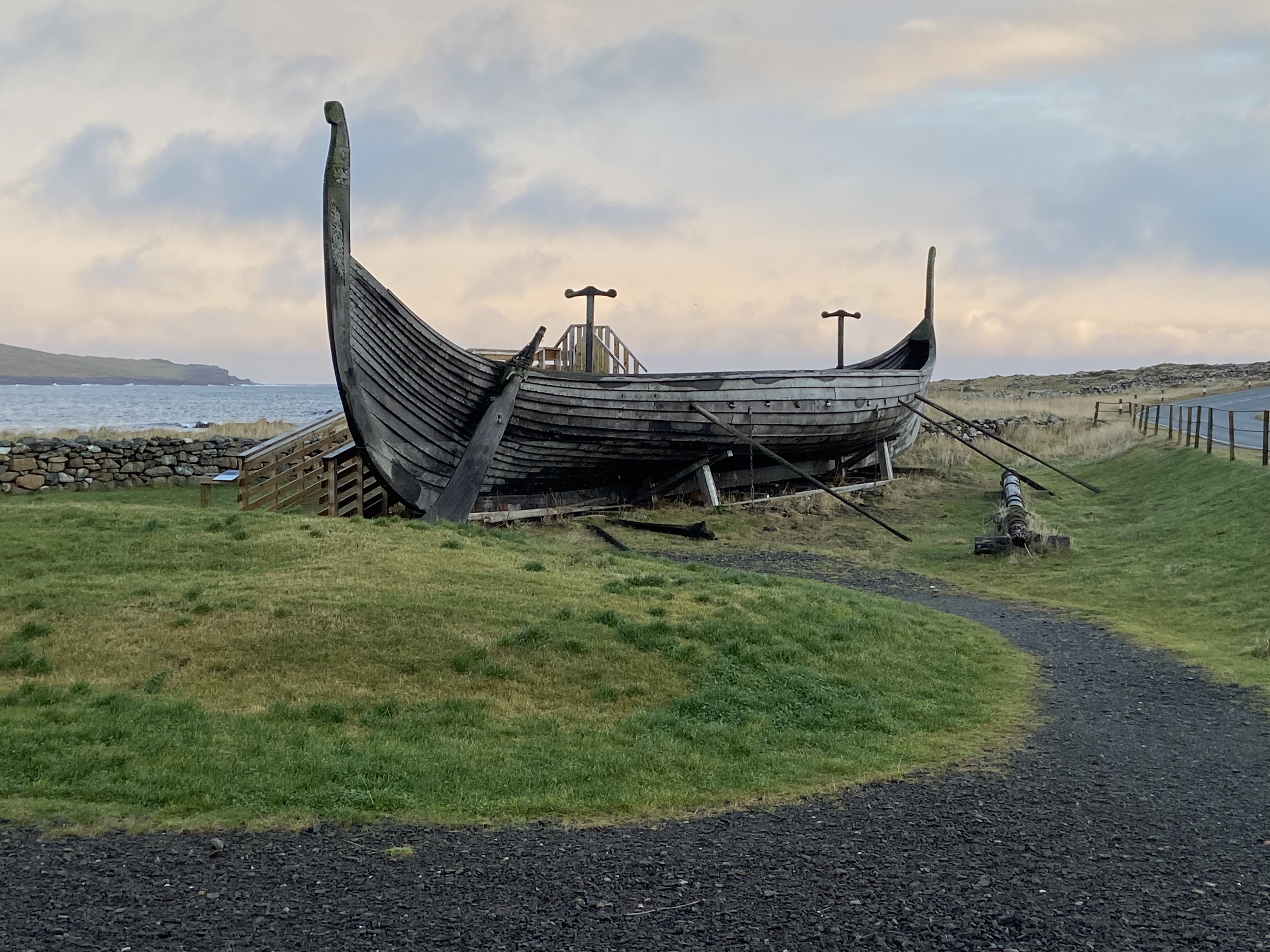Today’s Post
As you may well know, we love to share all kinds of aspects of Scandinavian culture on our blog. In the past, we have written about topics like our shared cultural values of equality and community in the Nordics. You can check out all of our cultural blog posts at this link here.
However, we haven’t shared too much about Scandinavian history, as it is a large topic to tackle. It requires a lot of background research, as we certainly didn’t learn much of it growing up outside of Denmark. But, there is one aspect of Scandinavian history that has always enthralled us, and we wanted to write about it! Without further ado, today’s post is all about Vikings and their place in Scandinavian history. You can find links to the sources I used for today’s post at the end, in case you want to do any further reading or investigation into the topic.

Who Were the Vikings?
The history of the word “Viking” is complex and its origins are actually somewhat unclear. It may stem from an Old English word for “village,” or possibly an Old Norse word for “sea mile.” It was not until the Middle Ages that it came to mean “pirate.” Now, Viking is its own term somewhat separate from “pirate,” but the similarities are clear. In short, the Vikings were a seafaring people from Scandinavia. Through a lot of violence and raiding, they expanded into many parts of Europe and other continents. To this day, they are depicted as ruthless warriors who wore horned helmets and drank out of human skulls. However, in reality, much of this is mythological. In their settlements, the Vikings had their own religion, laws, art, and many other aspects of civilized life.

Expansion and Raiding
Now, let’s look more specifically at the timeline of the Vikings’ various invasions and expansion into other territories. The officially-titled Viking Age began in 793 with an attack on a monastery in England. What followed was about 250 years of exploration and expansion. The Vikings rowed their longships, raiding, pillaging, and settling in many different parts of the world, including modern-day North America and Russia. Their motives for expansion are still unclear, as there was plenty of land in Scandinavia for them to settle on. However, historians agree that it was most likely due to a desire for more resources. The Viking Age ended in the 11th century, when the kingdoms of Sweden, Norway, and Denmark emerged more concretely, impacted by the spread of Christianity and emergence of nation-states in other parts of the world.

Viking Society and Culture
As I mentioned previously, while the reputation of the Vikings is that they were horribly violent and merciless, this is not the whole truth. Their society is actually an interesting one to study, as it was quite different to other societies at the time. Most Vikings were very resourceful, sustaining their communities by making the most of the land they lived on. They were skilled craftsmen, evidenced by the longships they sailed on, the homes they lived in, and the garments and accessories that they wore. Women had some rights to property, economic security, and even divorce, although their worth was still tied directly to the status of their husband. The Vikings even had a sort-of parliament called a “ting,” allowing them to create laws and resolve disputes. Clearly, they were more than just barbarians.
Impact on Modern Day
Now, it may be difficult to imagine a group of people that existed so long ago. However, this history is important for us to know, as it still has an impact on certain things in our lives today. For example, we can still see the remnants of the Vikings’ language in the British and Scottish town and city names near where they settled. Anything that ends in “thorpe,” “by,” or “kirk,” can be traced back to the Vikings, and these words still have meaning in the Scandinavian languages. “Thorpe” or “torp” is a summer house in Swedish, while “by” means town, city, or village and “kirk” means church in all three languages. Any name you hear that ends in “son” or “sen” also comes from the Viking tradition of naming a child “son of [father’s name].” For example, our Danish family’s surname is Klausen, or son of Klaus.
Thanks for Reading!
I hope you enjoyed today’s post and it was somewhat informative while still being fun to read. Leave a comment down below if there is something we missed (which there undoubtedly is!) or anything you want to share. Thanks for reading! The following are some sources I used to write this post and some materials for further reading: Wikipedia article, Visit Norway article, Visit Sweden article, Visit Nordic article, Encyclopedia Britannica entry.


